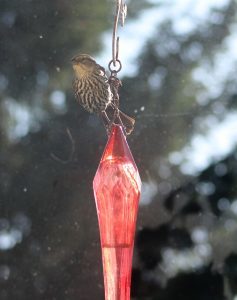Almost Summer, Poet Friend Hang Out Time, and Sending Out (Even When You Feel Discouraged) and the Harm of Instant Star Narratives

Me with roses and lavender in Kirkland’s Carillon Point Marina
Almost Summer…
There are a few things that I’ve learned herald the beginning of summer here in the Seattle suburbs. The blooming roses and lavender, sunflowers and goldfinches, the arrival of Rainier cherries on roadside stands, and the first hot air balloons going up around our house. We have yet to see the first hot air balloon, but I saw my first goldfinch on my sunflowers! It really is a beautiful time of year here (as long as I don’t have to stay inside because of the record-breaking heat and scorching sun, which happened this week – 92 degree in June!) We even had a gardening class that explained how to make our garden more friendly for the hotter, drier summers we’ve started to get in the Northwest. (Hint: Plant species that are naturally draught-resistant.)




Kelli and I with fushcias and Shakespeare
Spending Time with Poets
We were lucky to spend some time with poet Kelli Russell Agodon and her family (including her daughter, who is taking creative writing classes in college – so exciting!) We talked about rejection (we both got some that were a little hard on us) and summer poetry projects, and how to use social media correctly (I still need a little coaching on this, especially Instagram.) Glenn made a fruit and cheese plate (with strawberries we grew ourselves) and chocolate-dipped madeleines, and we wandered around the garden (I’m particularly proud of my now-very-healthy lavender roses.)



Sending Out in the Summer, and the Harm of Instant-Star Narratives
One of the things we talked about was how to stay motivated to keep writing and sending out in the summertime, how to bounce back from rejections that feel personal, and the harm of “Instant Star” narratives. These are the profiles in magazines or podcasts from young writers where they say “I sent my poetry manuscript out once, and it was taken at a big press, and then I won a major fellowship and got a tenure-track teaching job and was sprinkled with rainbows and unicorns.” Well, the end might be a little bit of hyperbole. The reason I don’t like younger writers to read these kinds of interviews and profiles is because it’s not even close to the reality for most writers, and if they think it is, then they will start out feeling more discouraged than they should. One writer friend said she was taking a class from Nick Flynn and he said it took him ten years to get his first book published. It took me eighteen months to find a publisher for my first book, but six years to find a publisher for the second. Right now I’m researching presses for my sixth poetry book which I think is pretty close to being done and a seventh that’s in progress. I expect to spend some money on reading fees (they are getting higher every year, so I set aside any money I make from poetry to spend on them) and to get some rejections. I worry that I’m getting a little older and the editors are getting younger. I worry my poetry is not “hip” enough, and that the subject matter (like my poems about dealing with multiple sclerosis) might be too downbeat. But I think I know to expect some rejections along the way, and I try not to take rejections of the manuscript (or fellowship/grant applications) personally, although honestly, it’s difficult not to. Hey, I’m not made of stone. One of the reasons it’s important to talk with other poets is that it reminds us we are not the only ones who struggle with these things. All of my poet friends – no matter how successful they seem to me – worry about a lot of the same things. Very few people are instant stars. A lot more people work really hard in obscurity, taking adjunct jobs and doing reading where few people show up and sending out their manuscripts as many times as they can afford. A lot of times rejections come in waves, but so do acceptances. And sometimes good luck happens in clusters. Anyway, for those of you looking towards summer, don’t forget to keep writing and keep sending out your work – these days publishers and literary magazines have deadlines year-round, especially the non-academic ones. And remember not to get beaten down by your rejections, and to help celebrate when you or your friends have a success, even if it seems small to you – I think our brains are hard-wired to focus more on the rejections than the acceptances, so we have to break out the sparkling wine and cake more often!



